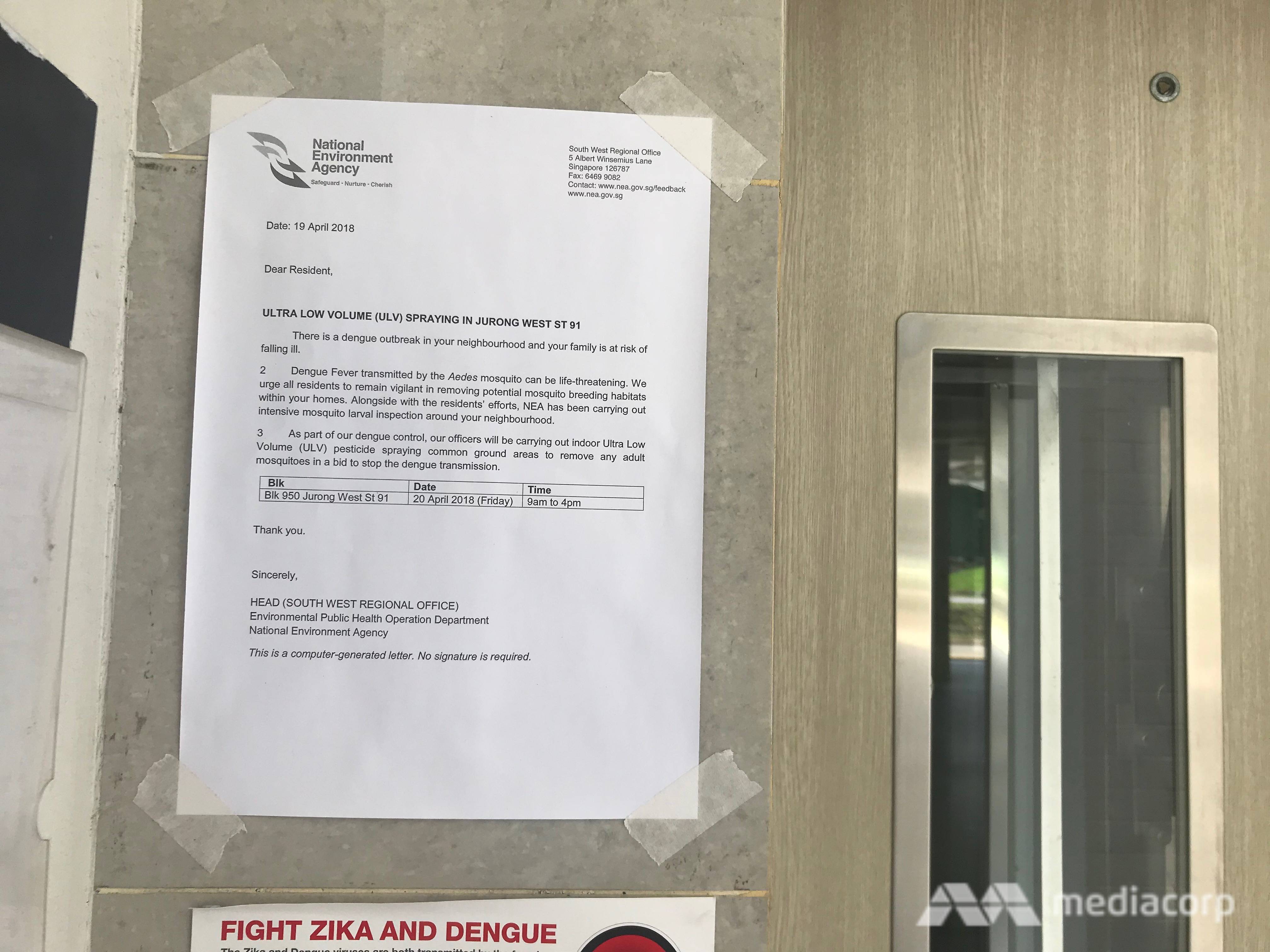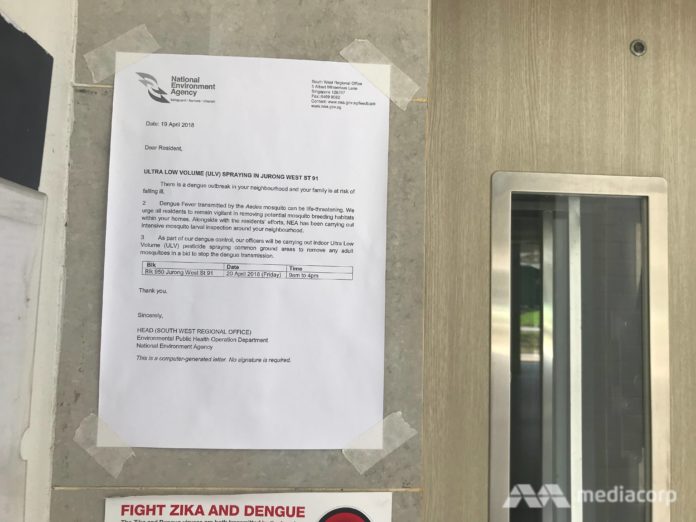SINGAPORE: More households were caught breeding mosquitoes last year, according to figures released by the National Environment Agency (NEA).
According to the figures, about 4,200 households were fined for mosquito breeding in 2017, compared to 3,900 in 2016.
Nearly three-quarters, or 87, of the 126 breeding habitats found in the Jurong West dengue cluster as of May 7 (Monday) were in residential premises, NEA told Channel NewsAsia on Tuesday. These habitats include flower bowls and vases, fountain, pails and dish drying trays.
The other 39 habitats were found in common areas including in gully traps and scupper drains.
A total of 65 dengue cases – including three deaths – have been reported in the cluster, which according to agencies is the largest thus far this year.
In March 2016 NEA moved to slap all errant households with a S$200 fine, regardless of whether they are within dengue clusters. “This is to ensure that all homeowners take immediate steps to remove and prevent mosquito breeding,” NEA said on its website.
Besides households, NEA said it has also been monitoring areas with higher potential for dengue transmission and breeding, such as construction sites.
Last year, the agency issued 48 stop work orders to construction sites and took 28 court prosecutions against contractors for repeat offences.
This is lower than in 2016, when it issued more than 60 Stop Work Orders and took court action against more than 60 repeat offenders.
In addition, NEA issued about 670 Notices to Attend Court to errant construction sites last year. This figure remains largely unchanged from 2016.
“Orders under the Control of Vectors and Pesticides Act are served to owners of unkempt or neglected premises for them to improve their housekeeping or otherwise risk heavier penalties,” NEA said.
Back in 2016, Environment and Water Resources Minister Masagos Zulkifli had said in Parliament that owners of premises found with breeding habitats can be fined up to S$5,000 under the Act.
“The current penalties have been effective in keeping re-offending rates low,” he said then. “Nonetheless, my ministry will continue to monitor the situation and introduce stiffer penalties if necessary.”
JURONG WEST RESIDENTS REACT
Back in the Jurong West cluster, NEA said officers have been spraying insecticides in common corridors and households to kill infected adult mosquitoes that might be propagating transmission.
“Since the cluster was notified on Apr 3, multiple rounds of checks have been carried out, both in the day and in the evenings when residents are back from work, as well as on weekends,” NEA said.

A notice informing residents of dengue control operations in the cluster. (Photo: Aqil Haziq Mahmud)
When Channel NewsAsia visited the cluster at Jurong West Street 91 and 92 on Wednesday, residents said officers have been entering their homes for inspections.
Homemaker Le Thi Que Lam, who lives in Block 953, said officers have come by twice in the past two weeks to check her room, toilet and flower pots.
“They did it quite carefully,” the 33-year-old told Channel NewsAsia. “They told me that if they see breeding spots, we will be fined.”
Ms Lam added that she is “really worried” about the “dangerous” outbreak because of the sheer number of cases and the reported deaths. As a precaution, she applies insect repellent on her young son and sprays insecticide at home.
Civil servant Png Chin Hoe, who lives in Block 944, said officers have entered his home thrice in the last month. “It’s a red zone here, so it’s better to have more checks,” the 25-year-old added.
Shopkeeper Mohammad Alamgir Hossain, 39, said officers are doing a “100 per cent good job” after they visited his home twice in the past week. Mr Alamgir lives in Block 950, which saw the highest number of cases in the cluster.
“They checked the kitchen and asked if they could apply chemicals (to kill the mosquitoes),” he said. “I see them working very hard every day until 9pm or 10pm.”
Mr Alamgir said his sister-in-law, whom he lives with, was hospitalised two weeks ago after coming down with dengue. Still, he remains unfazed. “There are more control measures now,” he added.





